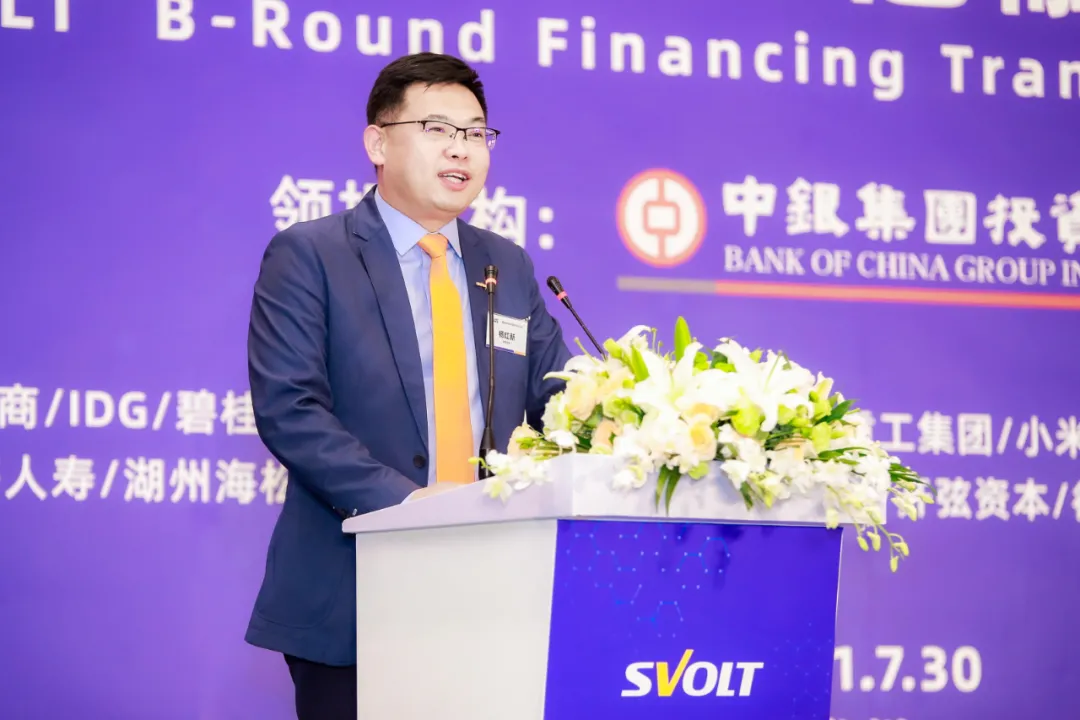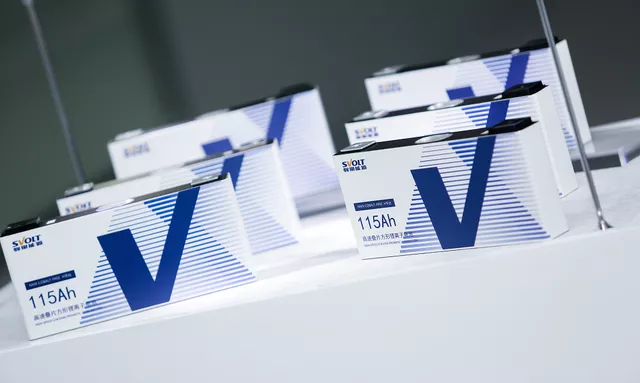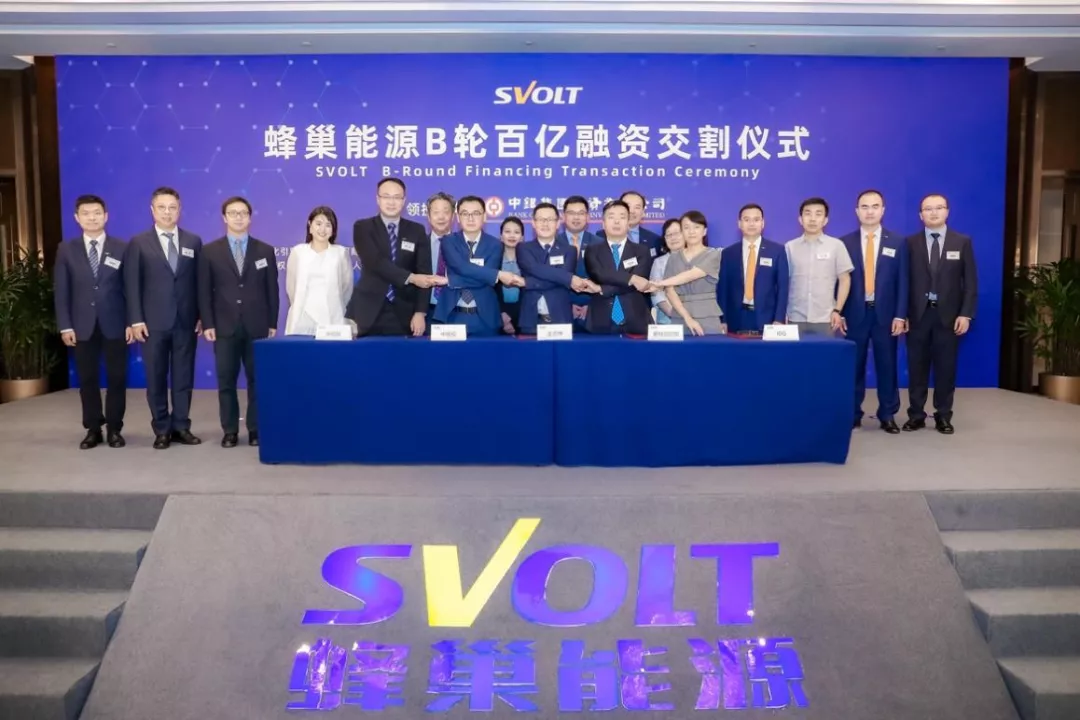Author: Wang Lingfang
Honeycomb Energy has completed its third round of market-oriented equity financing, raising a total of RMB 10.28 billion.
On July 30th, Honeycomb Energy held a B round financing settlement ceremony in Changzhou.
After the B round of financing, Honeycomb Energy has as many as 50 shareholders, with an additional 25 in this round alone. After this round of financing, the shareholding ratio of Great Wall Motor Co., Ltd. was reduced to 46%, less than half.
Along with the decrease in the shareholding ratio, Great Wall’s installation share in Honeycomb Energy has also declined. Yang Hongxin, Chairman and CEO of Honeycomb Energy, stated that Great Wall’s installation share will be reduced to around 50% next year and around 40% the year after.
It is worth noting that among the new shareholders of Honeycomb Energy is Xiaomi Group, which has announced its entry into the automobile manufacturing industry, with an investment of RMB 100 million.
Diversified Capital Injection
According to data provided by Honeycomb Energy, this financing round was led by CCB Investment, and joint investment institutions include the National Science and Technology Achievement Transformation Guiding Fund sub-fund, Country Garden Ventures, Shenzhen Capital Group, China Construction Bank Capital, IDG, Sany Heavy Industry, Xiaomi Group, Haitong Capital, and China Renaissance, among others. Original shareholders such as Guotou Zhongshang and Jiuzhi Capital also made major additional investments.
Among them was the highly-anticipated Xiaomi Group. Xiaomi’s industrial fund invested RMB 100 million in Honeycomb Energy. Of course, this is not the only power battery company in which Xiaomi has invested; it has previously invested in AVIC Lithium Battery.
The investment institutions of Honeycomb Energy are quite diversified, including industrial capital coordination capital, state-owned background, international investment institutions, and other investment institutions.
According to Wang Zhikun, Executive Vice President of Honeycomb Energy, industry synergy institutions include Sany Heavy Industry, Xiaomi Group, Guotou Zhongshang, Shanshan Capital, CCB Investment, Shenzhen Capital Group, Minsheng Equity, and others. State-owned background shareholders mainly include 8 institutions, such as Guotou Zhongshang, CCB Investment, Beijing Financial Street Capital, Changzhou High-tech Zone Investment, China Construction Bank Capital, Shanghai Guosheng, and the National Science and Technology Transformation Guiding Fund. International investment institutions include IDG and Kaihui, among others.
Wang Zhikun is very satisfied with this financing situation, stating, “This time, more than 100 institutions took the initiative to come to us and request to invest in Honeycomb Energy.” According to Wang Zhikun, Honeycomb Energy held an investment briefing in May, and the list of investment institutions was basically determined by the end of June. “In July, many institutions still wanted to come and meet us personally and invest, but we considered that the whole team needed to settle down and concentrate on the financing closing, so from July onwards, Honeycomb Energy entered a silent period. Therefore, this time (market capital) has been paying a lot of attention to our company.”
It is worth noting that in this round of financing, in addition to the controlling shareholders and the employee shareholding platform, more than 60% of Honeycomb Energy’s old shareholders continued to increase their investment, and Guotou Zhongshang participated in all three rounds of investment.
Undeniably, Great Wall’s endorsement has brought significant benefits to Honeycomb Energy’s start-up and financing.# China CITIC Bank Chairman Liu Jian expressed his sincere appreciation for Great Wall Motors, believing that Foton AUV has inherited the advantages of Great Wall.
As the final round of financing before listing, Foton AUV’s latest valuation is around RMB 36.28 billion after this round of financing.
However, Foton AUV needs about RMB 60-70 billion to achieve a production capacity of 200GWh in 2025, and the subsequent amount of funds needs to be raised through listing.
Funding for Research and Construction
The purpose of this fundraising is very clear, mainly for new technology research and new factory construction.
In Yang Hongxin’s view, Foton AUV’s main contradiction at present is the continuous increase in customer orders and insufficient effective production capacity. Foton AUV urgently needs to accelerate the construction and release of production capacity in new bases such as Sichuan, Suining, Huzhou, Ma’anshan, Nanjing and Europe, and the fourth phase project in Changzhou is still being planned, “We are still selecting sites and expect to add 1-2 large bases in the second half of this year.”

At present, Foton AUV’s production bases are mainly distributed in three economic circles, the Yangtze River Delta, the Yangtze River Middle Reaches and the Chengdu-Chongqing region.
According to the construction plan, Foton AUV’s production capacity that can be built next year is around 70GWh. The production capacity that has been built in Changzhou is currently 12GWh, and Changzhou plans to build another 6GWh.
Although Foton AUV is building production capacity at full speed, it is still in a state of supply shortage for the next 3-5 years.
Foton AUV has now obtained designated sales from 25 mainstream domestic and international automakers including Great Wall Motors, Geely, Dongfeng Motors, PSA, Zotye, Jinkang, and Leapmotor. More than 10 models equipped with Foton AUV battery system have completed public certification.
In the first half of 2021, Foton AUV achieved a sales revenue of approximately RMB 1.545 billion, a substantial increase of 350% compared to the same period in 2020. In terms of installed capacity ranking, it also ranks seventh in the industry.
As of the end of June 2021, Foton AUV has declared more than 2,400 patents, including 800 invention patents and 50 PCT international patents. It was rated as “Excellent Enterprise in Intellectual Property Rights of the Chinese Automobile Industry” by the China Association of Automobile Manufacturers for two consecutive years in 2020 and 2021 and was rated as “Unicorn Enterprise of 2020 Suzhou-Nantong National Independent Innovation Demonstration Zone” by the Jiangsu Provincial Department of Science and Technology.
Internationalization direction: Germany, India, Thailand
In addition to the domestic market, Foton AUV also has layout in the international market.
Yang Hongxin has previously stated in an interview that their internationalization strategy was launched last year.The first overseas project that was reported is a 20 billion Euro (approximately 1.55 billion RMB) investment in a battery factory and R&D center in Germany.

Yang Hongxin explained that this is a 24GWh factory, and the module will start production in 2022, while the battery core will start production at the end of 2023 or the beginning of 2024. The main customer is currently PSA, and other automakers are also actively discussing and cooperating.
The second direction for internationalization is in Thailand, where the company will build module and PACK factories to serve the entire Southeast Asia and ASEAN market, including Great Wall Motors and other international customers.
The third potential market is India. According to Yang Hongxin, many traditional European companies attach great importance to the Indian market. Although the new energy vehicle industry and electricity supply are just beginning in India, they have also formulated a roadmap for new energy and energy-saving vehicles and introduced subsidy and tariff policies. Therefore, European customers like Great Wall Motors and PSA have plans to enter India, and Honeycomb Energy is also planning to build battery factories in India, possibly through cooperation rather than building their own.
It can be seen that since the high-profile appearance of Honeycomb Energy in 2019, new products and concepts have emerged endlessly, and the market recognition of their products has also been improving. Driven by market demand, the company’s production capacity construction is also accelerating at a fast pace.
Honeycomb’s goal is not only to expand but also to strengthen. In Yang Hongxin’s view, with the rapid development of the new energy vehicle market, China can cultivate at least five relatively good battery companies, and Honeycomb’s goal is to be among the top three.
This article is a translation by ChatGPT of a Chinese report from 42HOW. If you have any questions about it, please email bd@42how.com.
